Health secretary giving evidence on care homespublished at 11:44 GMT 6 February 2018
The committee will now take evidence on care homes from:
- Health Secretary Shona Robison
- Geoff Huggins from the Scottish government
The Health and Sport Committee discusses care home sustainability
The committee then considers care home sustainability
MSPs debate equalities and human rights
The first minister leads a debate marking 100 years of women's right to vote
SNP MSP leads a debate on cyber-resilience among young people
Craig Hutchison
The committee will now take evidence on care homes from:
Allow X content?
This article contains content provided by X. We ask for your permission before anything is loaded, as they may be using cookies and other technologies. You may want to read X’s cookie policy, external and privacy policy, external before accepting. To view this content choose ‘accept and continue’.
Allow X content?
This article contains content provided by X. We ask for your permission before anything is loaded, as they may be using cookies and other technologies. You may want to read X’s cookie policy, external and privacy policy, external before accepting. To view this content choose ‘accept and continue’.
Allow X content?
This article contains content provided by X. We ask for your permission before anything is loaded, as they may be using cookies and other technologies. You may want to read X’s cookie policy, external and privacy policy, external before accepting. To view this content choose ‘accept and continue’.
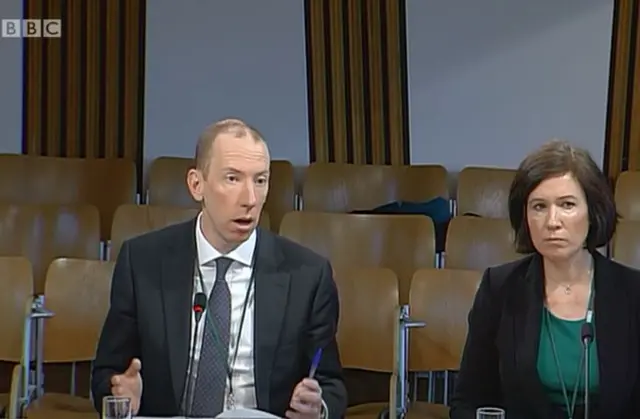 Image source, bbc
Image source, bbcFraser McKinlay from Audit Scotland
Lib Dem MSP Alex Cole-Hamilton says there is an issue with care home capacity.
He asks if planning law could be changed to make life easier.
Fraser McKinlay from Audit Scotland says that is an interesting question he will go away and look at.
He adds there is a challenge for long term planning associated with the workforce and care home buildings.
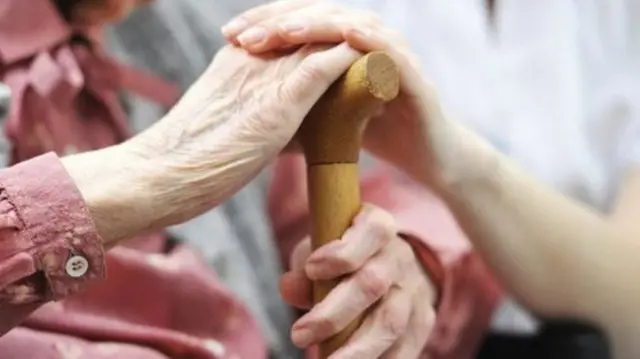
The current system of social care in Scotland is "unsustainable", according to the financial watchdog in 2016.
The Accounts Commission said an additional £667m, external would be needed by 2020 to maintain current levels of service, and called for a "frank and wide-ranging" debate on the issue.
It said an ageing population, budget cuts and legislative changes were putting pressure on the system.
Scotland's 32 councils currently spend about £3.1bn on social care.
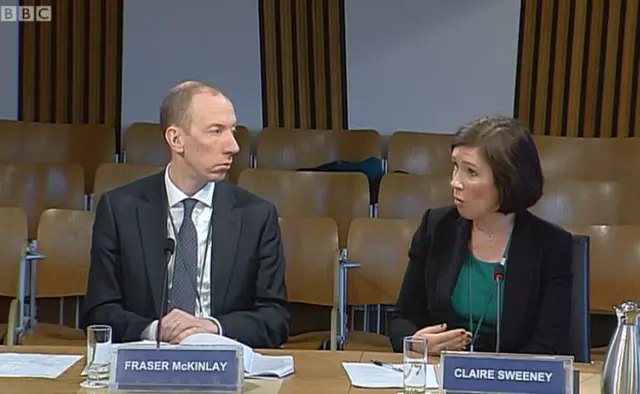 Image source, bbc
Image source, bbcClaire Sweeney from Audit Scotland
Claire Sweeney from Audit Scotland says the way that social care services are provided currently is not sustainable.
The funding model around residential care homes is not sustainable she says.
Mr Whittle says, in terms of care homes, there used to be the idea of a "granny farm" but people are living longer and need more care.
Ms Sweeney says: "We are looking at a different system now."
She says the needs of people in care homes is very different now.
 Image source, Getty Images
Image source, Getty ImagesIndependent care homes in Scotland have claimed they are "on the breadline" because of pay pressures and a recruitment crisis.
Scottish Care, which represents them, said further closures were likely without remedial action.
A survey found 79% of homes were struggling to recruit nurses and 35% struggled to find suitable managers.
The Scottish government said it had already taken action to ensure adult care workers received the living wage.
Fraser McKinlay from Audit Scotland says We are all for parliamentary scrutiny of budgets
"We will continue to bang the drum about clarity and transparency."
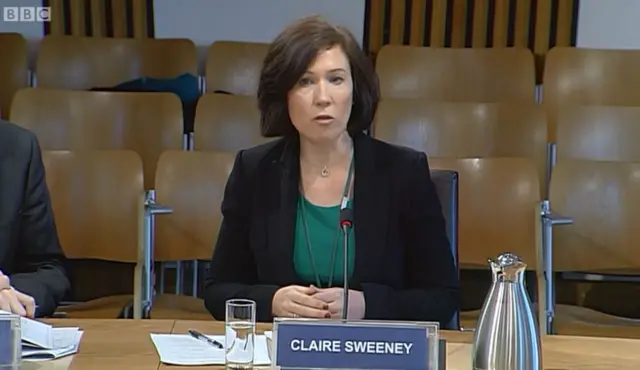 Image source, bbc
Image source, bbcClaire Sweeney from Audit Scotland
Claire Sweeney from Audit Scotland says there is no connection between the overall vision and how it will be implemented.
Ms Sweeney says the vision is more people being cared for in a homely setting.
She says there is so much pressure around the acute needs in the system.
Ms Sweeney says there is a crisis facing some areas of the system as it can feel from the frontline.
Mr McKinlay says some of the things Audit Scotland found in 2016 are still the case, despite good work from the Scottish government.
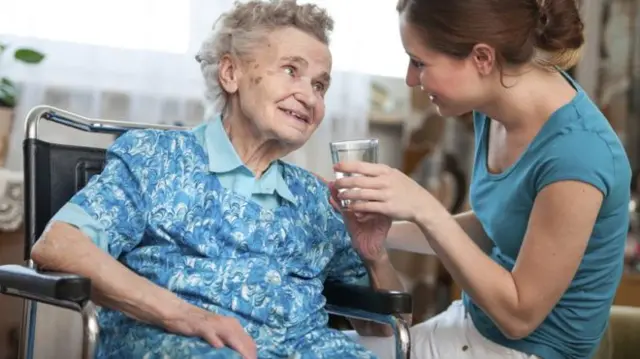 Image source, bbc
Image source, bbcThe number of people aged over 85 in Scotland is expected to double by 2034
Audit Scotland's 2016 report said a lack of leadership and planning was preventing Scotland's health and social care services changing fast enough.
Research for the Auditor General and the Accounts Commission said current ways of working were unsustainable.
Challenges included an ageing population and financial pressures, the report found.
The Scottish government said it recognised the new demands and was taking steps to counter them.
Read the report here., external
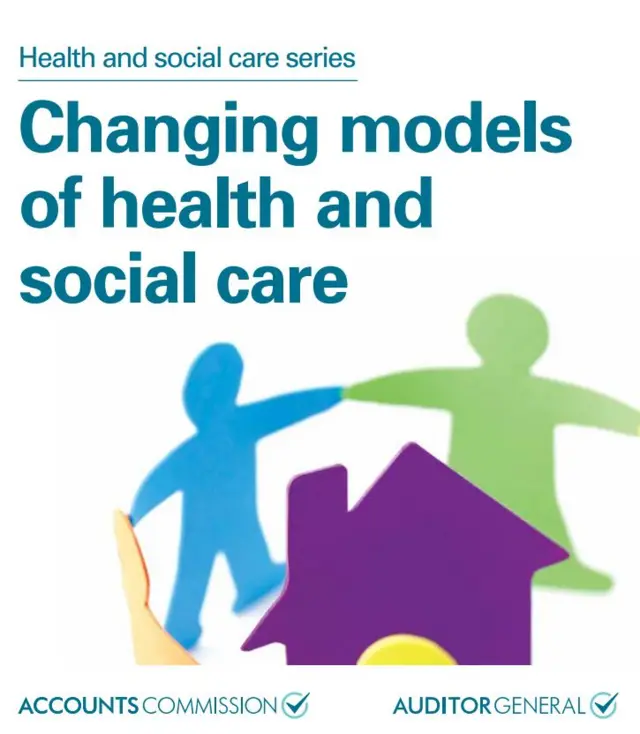 Image source, Audit Scotland
Image source, Audit Scotland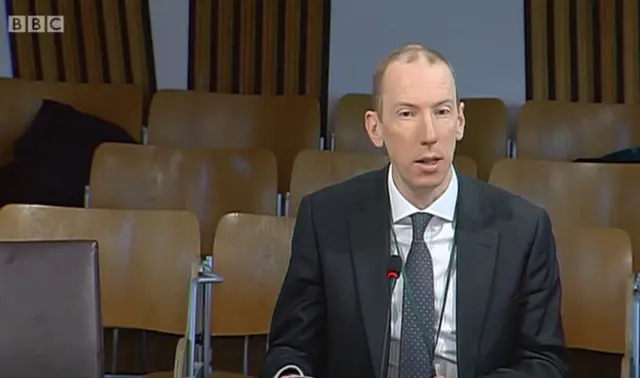 Image source, bbc
Image source, bbcFraser McKinlay from Audit Scotland
Fraser McKinlay from Audit Scotland says while there has not been specific work done on care homes, there has been a lot of work done on the sustainability of the health and care system alone.
Mr McKinaly says the transformational change required for care are not happening rapidly enough.
He says a report in 2016 showed the current models of care are unsustainable.
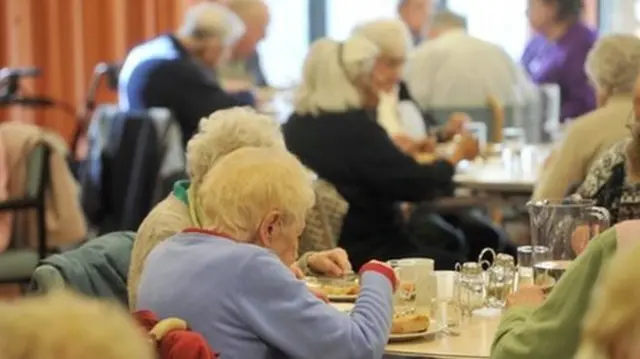 Image source, bbc
Image source, bbcThe committee will shortly take evidence from Health Secretary Shona Robison on care homes
First up on that topic are:
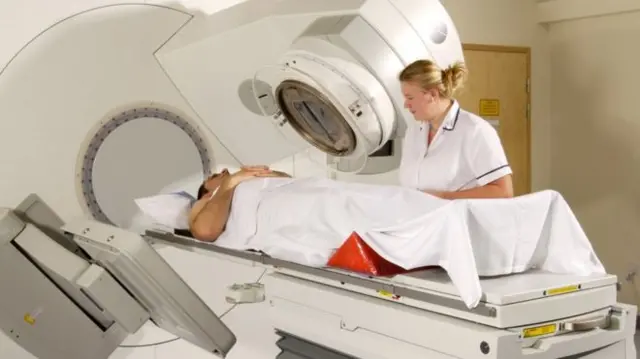 Image source, Science Photo Library
Image source, Science Photo LibraryDeath rates from cancer are 61% higher in the most deprived areas of Scotland, according to the latest figures.
NHS Scotland, external found living in a poor area affected your chance of survival despite an 11% drop in the number of deaths from all cancers since 2006.
There were also 27% more cancers diagnosed in deprived areas compared with the most affluent last year.
Campaigners have called for more to be done to understand and address the disparity.
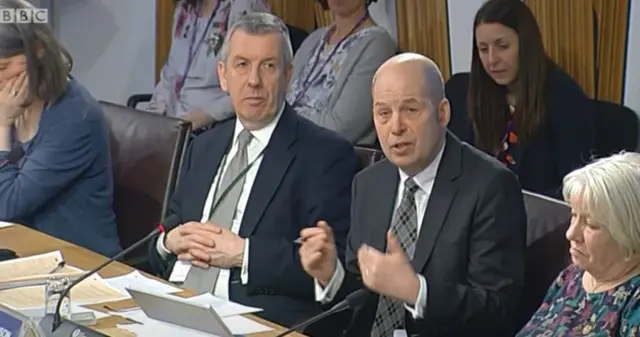 Image source, bbc
Image source, bbcEuan Paterson from Royal College of General Practitioners Scotland
Prof. Annie Anderson says people from poorer areas are less likely to come through screening, however a lot of people still come through from there.
She says offering lifestyle programmes for people coming through screening seems to do equally well from people from deprived areas.
Janice Preston from Macmillan Cancer Support in Scotland agrees and says it is about how everyone works together to ensure the most is made of every engagement.
Euan Paterson from Royal College of General Practitioners Scotland says: "We have to do more for the people we are not reaching at all."
 Image source, Getty Images
Image source, Getty ImagesAlcohol was a factor in more than 3,700 deaths in a single year in Scotland, according to new research.
Findings from NHS Health Scotland show that drink was involved in more than 1,000 deaths from cancer in 2015.
It was also linked to hundreds of deaths from conditions such as liver disease, as well as accidental injuries.
In addition, more than 41,000 people were admitted to hospital as a result of consuming alcohol, the study found.
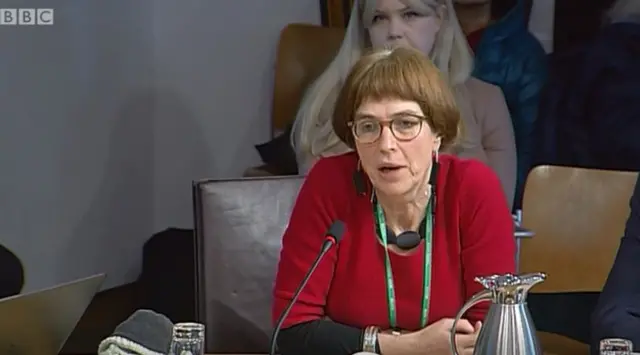 Image source, bbc
Image source, bbcProfessor Annie Anderson
Professor Annie Anderson says physical exercise can help prevent cancer and that message should be got out there.
Cancer prevention is possible for adults and it requires awarness, advocacy and role models.
 Image source, Getty Images
Image source, Getty ImagesA new breast cancer drug has been approved for use on the NHS in Scotland.
Palbociclib, which is taken in tablet form, can halt the spread of the disease in terminal patients for up to two years.
The move offers hope to women in advanced stages of breast cancer.
The Scottish Medicines Consortium (SMC)'s approval of the drug is being described as a "wonderful decision" and "great news" for sufferers.
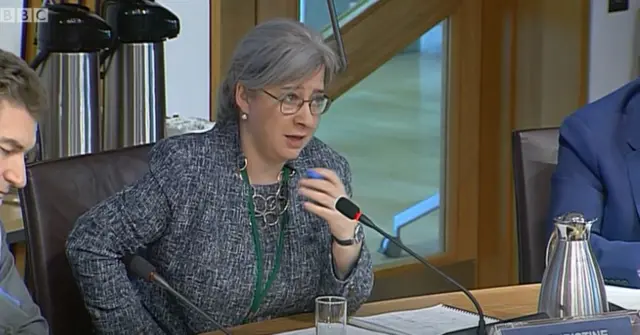 Image source, bbc
Image source, bbcDr Christine Campbell
Dr Christine Campbell says education is really important and thinking about fizzy drinks and what food is available in schools and health classes.
Dr Campbell calls for broader healthy life thinking.
She says prevention should be included in nursing and medical curriculae, as well as sport courses.
 Image source, Thinkstock
Image source, ThinkstockA cancer diagnosis is one of the most common life-changing events in Scottish life, with more cases than marriages or first births, the latest figures show.
Macmillan Cancer Support said there were 31,467 cancers diagnosed in 2015 compared with 29,691 marriages and 23,695 first births.
Cancer was also named as the disease people in Scotland most feared, ahead of conditions such as Alzheimer's.
The research is part of a campaign to remove the fear of a cancer diagnosis.